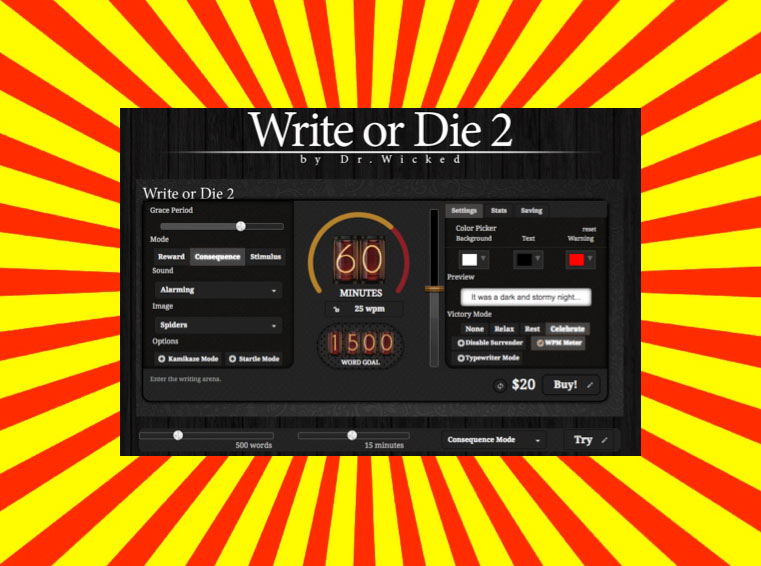Have you noticed that children love learning?
They throw themselves into playing with blocks, singing songs, drawing with crayons, and creating art.
But as we get older, many of us lose our love of learning.
Learning at high school and university can become all about …
• Copying things from the whiteboard, PowerPoint slides or your textbooks
• Reading your notes over and over again
• Re-writing your notes
• Staying up late to study for tests and exams
• Highlighting huge slabs of text
Here’s the thing …
When you feel forced to study something you don’t care about it can kill your love for learning. Studying takes on a torturous quality.
And when this happens, it’s easy to forget that you love to learn.
But it doesn’t have to be this way.
With a little creativity and a few simple tools, you can have a lot more fun with your studies.
Enter Fun Theory

Fun theory is this idea that if you want to engage in a particular behaviour (e.g. study) then you need to make the behaviour fun and novel for your brain.
Here are some ways you can apply fun theory to the learning process:
1. Geography
For starters, let’s not call it geography. Let’s reframe it to learning about the world (i.e. your home).
Next step: get your hands on the largest world map you can find. Choose the map with the brightest colours (your brain loves bright colours). Now stick it to your wall.

Every time you meet someone new from another country, make it a fun game to find where he or she live on the map. Want to get a really good sense of where they live? Jump on Google maps and look at the street view.
Other strategies to try:
• Get a sense of how people live in this part of the world by visiting Dollar Street (this brings it to life)
• Jump online and find an online paper created in that part of the world. For example, learning about India? Check out The Times of India. This will give you a sense of the issues the local people are dealing with.
2. Writing essays for English

Need to bash out a 1,000 word essay in a short period of time? Then try using the Write or Die app.
The Write or Die app is a writing tool that helps you get words down fast. Here’s how it works: you set goals for how many words and the length of your writing session. Then you select either reward or consequence.
If you select reward, every time you hit a writing milestone a picture of a cute puppy will flash on the screen. Consequence mode will punish you with a red flashing screen and sirens if you’re writing too slowly. If you don’t pick up the pace, the computer will start eating up your words!
Other ways to make writing essays fun for your brain:
• Use different coloured pens and paper
• Select a crazy font on your computer
• Storyboard your essay: create a plan of your essay in picture form
• Dress up in a crazy costume or wear some ridiculous over-the-top item as you write (e.g. a feather boa or a crown).
• Give yourself a sticker every time you hit a writing milestone

3. Learning a foreign language
Reading language textbooks can feel like a hard slog. To lighten things up for your brain, you could try:
• Using the Duolingo app
• Use a verb wheel (it feels a bit like being on the show Wheel of Fortune)
• Get out children’s language books from the library
• Go to a restaurant where the staff speak the language and practice your language skills on them
• Create a kids book in the foreign language
• Watch videos and movies in the language
4. Practicing lines for a play or speech
The thought of having to memorise lines for a performance or speech can be overwhelming for your brain. Try doing the following:
• Use the Line Learner app
• Practice your lines in different accents
• Dress up and get fully into character
• Say your lines in an overly dramatic way
• Stand in front of the mirror and practice with yourself
• Drop your lines randomly into conversation with your friends
• Practice with your friends
• Sing your lines
5. Studying for tests and exams
The key here is to trick your brain into thinking it’s not studying for a test or exam. The best way to do this is to create a party atmosphere.
Here’s what I suggest:
1. Invite your friends over to study for a particular subject or topic.
2. Prepare a couple of platters of healthy snacks (e.g. fresh fruit and veggies sticks and dip), get some ingredients to make smoothies, put some background music on (nothing too distracting) and decorate the place with post-it notes, coloured pens and lined paper.
3. When your friends arrive, spend the first 10 minutes catching up (set a timer for this).
4. After socialising, set a timer for 25 minutes. Remove all phones from the space. It’s time to hit your books and/or flashcards.
5. When the timer goes off, everyone gets up and moves for 5 minutes (e.g. do a dance, go for a walk or do some karate kicks).
6. Rinse and repeat steps 4 and 5 until you feel like you need a longer break.
Not keen on throwing a study party? Fair enough. Try these ideas instead:

• Jump on Ducksters for simple and straightforward explanations
• Explore ideas in children’s books or any book that makes the topic seem fun for your brain (tip: pictures, illustrations and bright colours help).
• Get a whiteboard and some coloured pens and draw out everything you can remember about the topic. Do this for 5 minutes or until you exhaust your memory. Make sure you then check for gaps in your knowledge and things you incorrectly recalled.
• Venture outside into nature with your textbook, notes and/or flashcards.
To sum up
Studying doesn’t have to feel like a chore. With a few tricks, you can fool your brain into thinking fun times are ahead! And the thing is when you’re having fun and you’re feeling good, you will learn more. It’s a win-win situation!
The key is to experiment and see what works for you. Keep things new and fresh because your brain loves anything that is new and novel.
Have any other ideas on how to make studying fun and novel for your brain? Feel free to post them below!








6 thoughts on “How to Inject More Fun into Your Studies: Reprogramming Your Brain to Love Learning”
Awesome content!!
Thanks Carlos! 🙂
Dr Jane Genovese
Very helpful and informative blog, a study should not be a burden on children. Children grasp easily when the study is combined with fun.
Absolutely Amrit! When learning is fun, everyone (not just children) finds it easier to learn new ideas and skills.
Dr Jane Genovese
yes, add fun in daily school activity make it easier for students to learn new things and fun activities develop more interest among them.
Thanks for your comment Sumit.
Yes, we need to inject fun into the learning process everyday. I find as soon as my brain begins to feel bored, learning feels a lot harder! So I’m constantly thinking of ways to excite my brain and keep it stimulated 🙂
Dr Jane Genovese
Comments are closed.